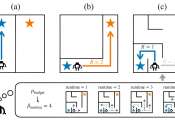Ion thermoelectric conversion devices for near room temperature
The electrode sheet of a thermoelectric device consists of ionic hydrogel, which is sandwiched between the electrodes to form, and the Prussian blue on the electrode undergoes a redox reaction to improve the energy density ...
16 hours ago
0
19




